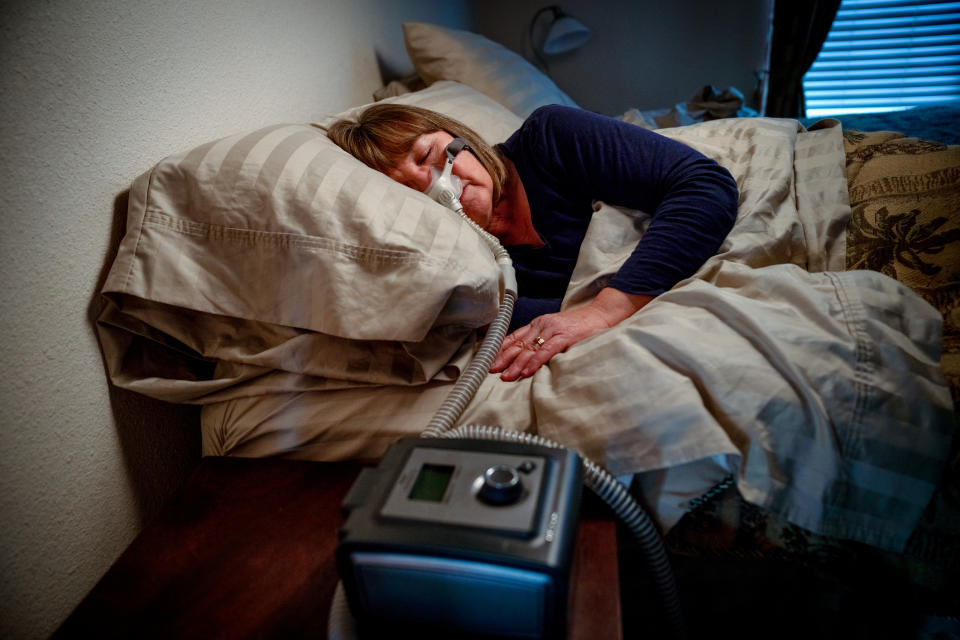Company in Huge Trouble After Its CPAP Machines Blew Foam Into Users’ Lungs
The Dutch conglomerate Philips is paying out a gigantic settlement to unhappy customers whose breathing machines blew foam and gases into their mouths while they were trying to get a good night's sleep.
As the New York Times reports, Philips Respironics, a subsidiary of the multinational corporation, has agreed to pay out a whopping $479 million — nearly half a billion dollars — to customers affected by the recalled breathing assistance devices, known as continuous positive airway pressure or CPAP machines.
Most often used by those who suffer from sleep apnea, a condition in which people suddenly stop breathing while sleeping, CPAP machines fit over the user's mouth or nose and are connected via thick tubing to machines generally placed next to one's bed. The breathing machines are by no means discreet, and for both the wearer and whoever sleeps next to them, they can be quite loud and disruptive.

These machines were already unwieldy enough without the malfunction causing gases and foam to spew into unsuspecting users' mouths — a glitch that was apparently widespread enough for Philips to recall more than five million of its CPAP machines since 2021.
As the Fierce Biotech noted earlier this summer, there have been more than 105,000 complaints about the machines to the Food and Drug Administration to date, and they have been associated with 385 reported deaths, with 40 of those being reported this year alone.
In a statement provided to Fierce Biotech about this first wave of the settlements, lawyers for the plaintiffs in the class action lawsuit over the devices said that Philips will be providing affected users anywhere from $55 to $1,552 in damages, along with $100 per device returned and additional funds to replace them.
The settlement, as the biopharma site notes, is part of a $615 million fund Philips began setting aside earlier this year to handle complaints about the company's ongoing recall of its CPAP machines and other respiratory devices.
That amount is by no means chump change, but it is evidence of the slow-moving nature of class-action lawsuits that it's taken more than two years since Philips' initial recall.
It's undeniably good that those affected and their families are getting some much-deserved compensation for this harmful machine malfunction, but it'd be better if the devices didn't screw up so royally in the first place.
More on medical malfunctions: Doctors Discover Instrument Left in Patient's Body For 18 Months After Surgery

